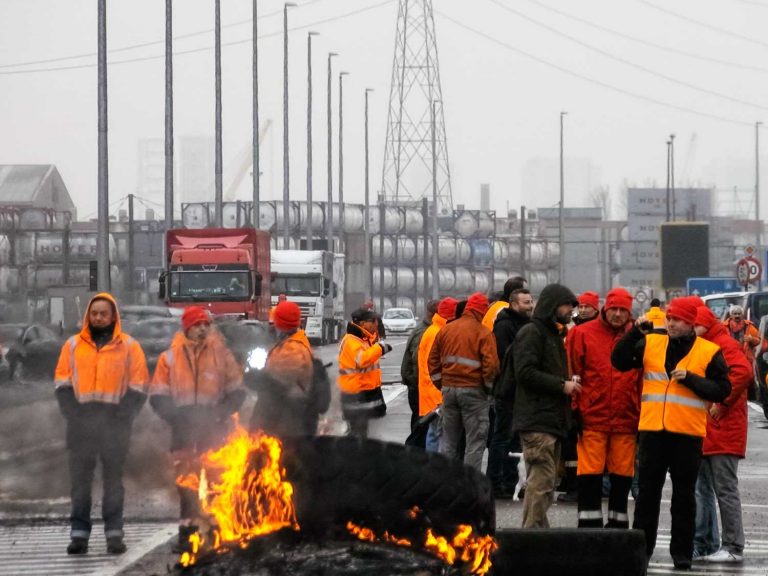
Date:
Labour disputes in the global supply chain (a winter of discontent)
Strikes and industrial action continues to plague ports, airports, transport infrastructure and international and domestic supply chains and while much attention has been focused on UK, European and North American situations, the wave of disputes have been spreading to Asia, South Africa, Chile and Australia.
The impact of last month’s three-day strike by Dnata and Menzies ground handlers at London Heathrow, wasn’t as bad as feared, after unions reached a pay-deal with Dnata.
Starting tomorrow, 350 Menzies ground staff are expected to stage walkouts at Heathrow, which will predominately affect flights from terminals 2, 3 and 4. The industrial action by baggage handlers employed by aviation supplier Menzies will take effect from 4am, Friday 16th December, and last 72 hours. UPDATED 16th December – This strike by Menzies ground handlers has been suspended as revised offer put to members, but Unite confirms further dates for action over festive period will still go ahead, if the deal is not accepted.
Tomorrow’s action at Heathrow is just one of a wave of strikes that are sweeping the country, threatening freight operations as workers across the transport network, Royal Mail and civil service take industrial action in ongoing rows over pay and conditions.
Staggered rail strikes in The UK, by a number of unions, will disrupt operations and service integrity, which will inevitably impact freight operations, while action by Royal Mail staff may disrupt the transmission of critical documentation.
Border Force members of the Public and Commercial Services (PCS) union will walk out for four days, from 23rd December but, despite them targeting two of our major airfreight hubs – Heathrow and Birmingham – we are hopeful that their action will not have much impact on freight.
In the UK dock worker disputes at Liverpool and Felixstowe saw massive drops in vessel calls and terminal dwell times more than double. The strikes in Liverpool have come to an end after a deal was agreed, but there has been no agreed resolution to the dispute in Felixstowe and the threat of further action remains.
South Korean truckers voted to end their strike last Friday, as it entered a third week, after realising that their bid to make a government scheme on minimum freight rates permanent was failing, and fears that their action had caused “astronomical” damage to the economy.
South African workers at state-owned port and rail operator Transnet agreed a pay-deal, after a two-week strike shut down ports including Durban, Cape Town and Coega had reduced vessel calls by 60%.
In the U.S. the unresolved West Coast longshore workers agreement continues to hang over supply chains, but the looming national rail strike, which could have caused untold economic damage has been averted by legislation. Meanwhile, dock worker strikes are affecting Chilean ports and a dispute involving towage operators threatened to close Australia’s ports until the courts intervened.
However you look at it these ‘strikes’ affect supply chains – globally – and we will ensure that you are best positioned to be aware of the potential impact. The situation is not unique to the UK, or even France, and hopefully stability and consistency will be restored early in 2023. We will provide the work arounds and best fit solution during this time of uncertainty.
While we continue to monitor all points potentially affected by industrial action, our focus remains the continuity of operations, to ensure that your supply chain is protected at all times.
To learn how we work around disruption and congestion, please contact Elliot Carlile, who can advise on our preparations ahead of threatened industrial action.
